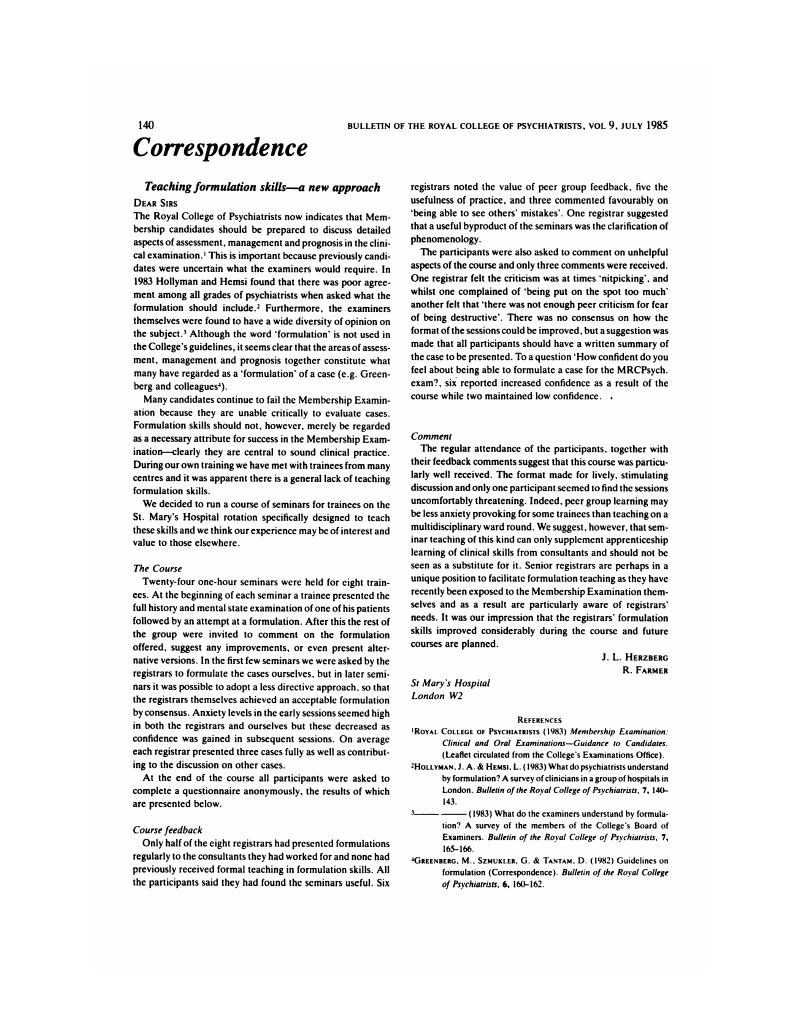No CrossRef data available.
Article contents
Teaching formulation skills—a new approach
Published online by Cambridge University Press: 02 January 2018
Abstract
An abstract is not available for this content so a preview has been provided. As you have access to this content, a full PDF is available via the ‘Save PDF’ action button.

- Type
- Correspondence
- Information
- Creative Commons
- This is an Open Access article, distributed under the terms of the Creative Commons Attribution (CC-BY) license (http://creativecommons.org/licenses/by/4.0/), which permits unrestricted re-use, distribution, and reproduction in any medium, provided the original work is properly cited.
- Copyright
- Copyright © Royal College of Psychiatrists, 1985
References
1
Royal College of Psychiatrists (1983) Membership Examination: Clinical and Oral Examinations—Guidance to Candidates. (Leaflet circulated from the College's Examinations Office).Google Scholar
2
Hollyman, J. A. & Hemsi, L. (1983) What do psychiatrists understand by formulation? A survey of clinicians in a group of hospitals in London. Bulletin of the Royal College of Psychiatrists, 7, 140–143.Google Scholar
3
Hollyman, J. A. & Hemsi, L. (1983) What do the examiners understand by formulation? A survey of the members of the College's Board of Examiners. Bulletin of the Royal College of Psychiatrists, 7, 165–166.Google Scholar
4
Greenberg, M., Szmukler, G. & Tantam, D. (1982) Guidelines on formulation (Correspondence). Bulletin of the Royal College of Psychiatrists, 6, 160–162.Google Scholar



eLetters
No eLetters have been published for this article.